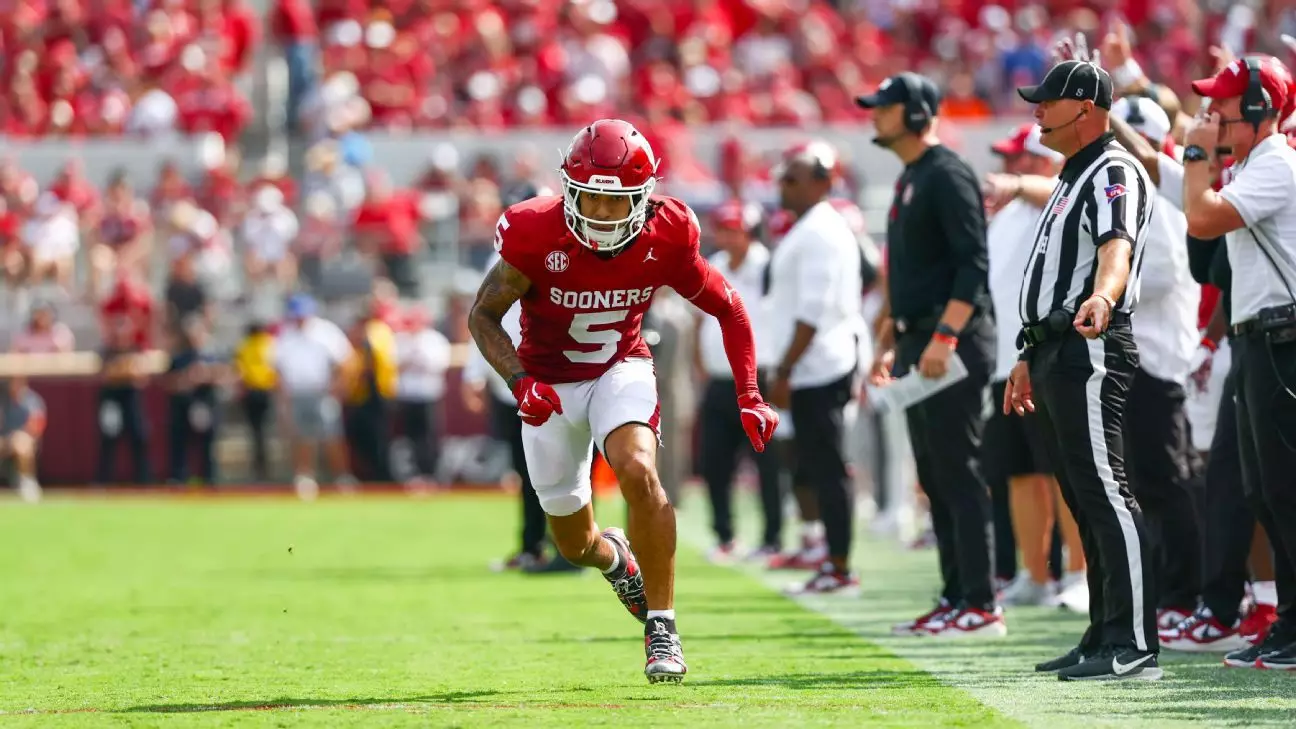In the recent clash between Oklahoma and Auburn, a critical officiating lapse has once again exposed the fragility and inconsistency inherent in college football’s regulatory system. Officiating is supposed to guarantee fairness and uphold the integrity of the game, yet time and time again, errors—particularly those that influence the outcome—highlight systemic shortcomings. This incident—where a “hideout tactic” went unnoticed—raises uncomfortable questions about the reliability of referees and the tools they rely upon. It serves as a stark reminder that even at the highest levels of college football, the observer’s eye can falter, and rules meant to ensure fair play are sometimes unrecognized or poorly enforced.
The SEC’s belated acknowledgment that their crew erred in dismissing the “hideout tactic” underscores a deeper institutional failure. Instead of proactively ensuring rules are applied uniformly and correctly, the league’s officers appeared to miss a crucial violation, one that could have dramatically changed the game’s momentum. When officials fail in their duties, it not only compromises the game’s integrity but also fuels skepticism among fans, players, and coaches—each of whom relies on transparent and precise officiating to uphold the sport’s credibility.
The Politics of Fairness and the Role of Authority
The issue raises wider political questions about oversight and accountability in sports governance, echoing the broader debate about institutional transparency. College sports operate in a complex environment, caught between commercial interests, tradition, and student-athlete welfare. The officiating crew’s failure, coupled with the NCAA’s and SEC’s muted responses, highlights an unsettling tendency toward complacency.
Liberal-minded observers might argue that sports organizations, much like other institutions, need radical reforms. Relying on past protocols or making simple apologies after mistakes aren’t enough. That’s especially true in an era where expanding technology—such as instant replay and AI-assisted officiating—could dramatically improve accuracy but are either underutilized or inconsistently applied. There’s a moral imperative here: institutions should prioritize fairness and transparency, rather than shielding officials or soft-pedaling accountability.
Furthermore, the attempt by Oklahoma’s coaches to dismiss the call as a “tempo play” highlights a troubling disregard for rule enforcement. The idea that deception tactics are fair game so long as they aren’t technically illegal demonstrates a problematic shift in the sport’s ethos. Fair competition relies on clear boundaries and consistent enforcement, not on exploiting ambiguities to gain an unfair advantage. When officials are slipshod or biased, it erodes the foundation of integrity that fans, players, and coaches all expect.
The Need for Systemic Reforms
Addressing this officiating failure requires more than just a corrective statement or a report of “appropriate accountability.” It demands genuine systemic reform—embracing transparency, enhanced training, and accountability measures that go beyond lip service. The lacunae revealed in this game are symptomatic of a larger issue: an underinvestment in officiating education, insufficient use of technological tools, and a culture that often prioritizes swift game proceedings over meticulous rule enforcement.
The sporadic reprimands for officiating errors, including the recent reprimand in the Big 12’s Missouri-Kansas game, suggest that the current corrective measures are inadequate. Instead, leagues and governing bodies should consider establishing independent review boards, mandating technology-assisted reviews, and making officiating records publicly available. Such steps would not only restore public trust but also incentivize officials to perform their duties with the seriousness they deserve.
In a broader sense, reform must also involve changing the culture within officiating crews—dopting a mindset that prioritizes integrity over expediency. Officials need ongoing training that emphasizes the importance of strict adherence to rules and the consequences of missed calls, reinforced through transparency and accountability. Only then can the sport move toward a future where flawed officiating becomes the exception, not the rule—a future where fairness and integrity are truly prioritized over controversy and cover-ups.
This incident exposes the harsh reality: despite technological advances and regulatory frameworks, the human element remains vulnerable. A more vigilant, transparent, and systematized approach is essential to elevate college football to a level where officials can be trusted to uphold the game’s fundamental principles without succumbing to pressure, oversight lapses, or complacency.


Leave a Reply